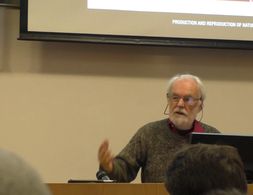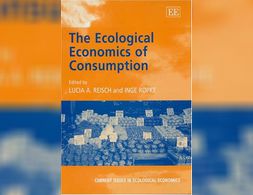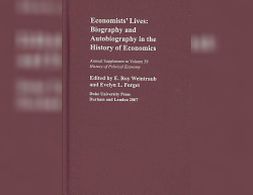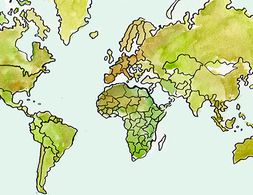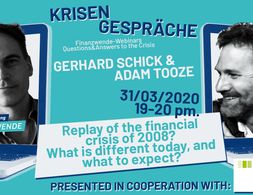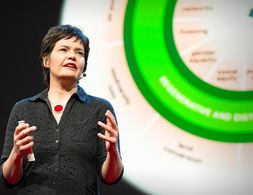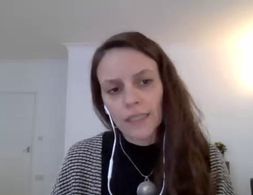✕
432 results
Surviving the Future is a story drawn from the fertile ground of the late David Fleming's extraordinary 'Lean Logic: A Dictionary for the Future and How to Survive It'. That hardback consists of four hundred and four interlinked dictionary entries, inviting readers to choose their own path through its radical vision. Recognizing that Lean Logic's sheer size and unusual structure can be daunting, Fleming's long-time collaborator Shaun Chamberlin has selected and edited one of these potential narratives to create Surviving the Future. The content, rare insights, and uniquely enjoyable writing style remain Fleming's, but are presented here at a more accessible paperback-length and in conventional read-it-front-to-back format
This article outlines the fundamental challenges of democratically planned economies and categorises proposed models into six groups, each of which approaches planning and coordination at different levels of authority and between myriad economic units in a particular way, taking into account efficiency as well as democratic principles and environmental and social sustainability. Through a classification system based on decision-making authority and mediation mechanisms, the article provides a framework for understanding and comparing these models. By examining their different approaches, it offers insights into the complexities and potential paths of democratically planned economies in the 21st century.
Karl William Kapp (1910-1976) was one of the forefathers of Ecological Economics. Influenced namely by the Frankfurt School, Institutionalist Economics and Pragmatist Philosophy, he contributed to debates on the social costs of production, economic planning, sustainable development and epistemology. I
Professor David Harvey presents a complete visual representation of the flow of capital in all its forms. Similar to the Water Cycle diagrams, Harvey models the economics of production, consumption, human reproduction, labor, private business, and government redistribution.
The book’s central theme is to develop a new theory of speculative capital related to other forms of capital, the world market, and the state. Unlike most marxist and heterodox theories, the book distinguishes credit and fictitious capital from speculative capital to show its hegemony today in the capital markets.
Research on consumption from an environmental perspective has exploded since the late 1990s. This important new volume cuts across disciplines to present the latest research in the field. The book is divided into three parts, the first of which addresses the problems of consumption both as a concept and as an economic and social force with high environmental impact.
This collection of essays, a supplement to History of Political Economy, brings together prominent scholars from economics, sociology, literature, and history to examine the role of biography and autobiography in the history of economics. The first of its kind, this volume looks at the relevance of first-person accounts to narrative histories of economics.
Imperialism is not only about military force and political pressure applied by developed capitalist countries on less developed ones for economic gain It also has an everyday dimension Countless acts of production and consumption the current SUV boom being a prominent example draw on exploitation of resources and labour from …
Money is the fantasy that makes the world go round. Where did it come from and what is its future? From the Bank of England to Bitcoin and the Bristol Pound, LSE sociologist Nigel Dodd explores.
In this video, Clara Mattei investigates the function of austerity in relation the stabilization of capitalism as a form of social order build around private property, wage labor and class relations. In order to develop this argument, she situates austerity in the history of World War 1 and its revolutionary aftermath. Zooming in on the politicization of the economy and the associated threat to class society that emerged in the period, she highlights how austerity was a „tool of reaction“ that was successful in curtailing demands for economic democracy and a society free from class oppression.
This book discloses the economic foundations of European fiscal and monetary policies by introducing readers to an array of alternative approaches in economics. It presents various heterodox theories put forward by classical economists, Marx, Sraffa and Keynes, as a coherent challenge to neoclassical theory.
Financialization is one of the most innovative concepts to emerge in the field of political economy during the last three decades, although there is no agreement on what exactly it is. Profiting Without Producing by Costas Lapavitsas puts forth a distinctive view defining financialization in terms of the fundamental conduct of non-financial enterprises, banks and households.
Since the Middle Ages, literature has portrayed the economic world in poetry, drama, stories and novels. The complexity of human realities highlights crucial aspects of the economy. The nexus linking characters to their economic environment is central in a new genre, the "economic novel", that puts forth economic choices and events to narrate social behavior, individual desires, and even non-economic decisions.
Economics should schematically explain the key elements and main strands of this core part of social life: the actual workings of our economies. This book argues that orthodox, modern neoclassical economics does not fulfil this core task. Standard economics models do not address the real functioning of our market economies, but rather an imagined economy.
This guide contains a collection of recommended YouTube channels and YouTube videos in the fields of economics, business and economic policy.
The Routledge Handbook of Feminist Economics presents a comprehensive overview of the contributions of feminist economics to the discipline of economics and beyond. Each chapter situates the topic within the history of the field, reflects upon current debates, and looks forward to identify cutting-edge research. Consistent with feminist economics' goal of strong objectivity, this Handbook compiles contributions from different traditions in feminist economics (including but not limited to Marxian political economy, institutionalist economics, ecological economics and neoclassical economics) and from different disciplines (such as economics, philosophy and political science). The Handbook delineates the social provisioning methodology and highlights its insights for the development of feminist economics. The contributors are a diverse mix of established and rising scholars of feminist economics from around the globe who skilfully frame the current state and future direction of feminist economic scholarship. This carefully crafted volume will be an essential resource for researchers and instructors of feminist economics.
How do we get our dinner? And who cooked Adam Smith's dinner? Starting with Smith's answer on the origin of a dinner, Katrine Marçal problematizes and illustrates how unpaid labour was and is still being ignored by economic theory and how the homo economics represents characteristics perceived as male.
Happy International Women s Day This International Women s Day 2018 is an opportune moment to highlight prominent scholars of Feminist Economics As a subdiscipline of economics Feminist Economics analyzes the interrelationship between gender and the economy often critiquing inequities and injustices perpetuated by mainstream paradigms Work of this nature …
Social and Solidarity Economy (SSE) and Feminist Economics make a conjoint statement: The way we see the economic system has nothing to do with human beings nor those who have been surviving outside the market.
"Why information grows" by Cesar Hidalgo and the atlas of economic complexity. César visits the RSA to present a new view of the relationship between the individual and collective knowledge, linking information theory, economics and biology...
This article investigates the set up of the CFA franc zones, its ties to French neocolonialism and its ability to further breed dependency in the former colonies.
Prof. Robert Guttmann looks at the current transformation of the international world order through the lenses of global money and finance.
This content submission has two parts: (1) a link to the post by Wolf Richter on deterioration of US subprime credit card debt and loans, driven in part by the overuse of hedonic quality adjustments in the Consumer Price Index (CPI) used by the US Bureau of Labor Statistics, and (2) to introduce Exploring Economics to the website Naked Capitalism, which is an effort to promote critical thinking through the medium of a finance and economics blog and fearless commentary.
Planet Money and The Indicator aim to explain current economic events in an easy, fun and accessible manner.
Prof. Yanis Varoufakis talks in this introductory lecture about the future of our economy and the current state of economics with special regard to pluralism in economics.
Overview page for the collection of nobel laureateas on Exploring Economics
To prevent the coronavirus shock to demand precipitating a long-lasting depression, government needs to become short-term payer of last resort.
Currency hierarchy and policy space: A research agenda for development economics Barbara Fritz
For some days, global financial markets are in turmoil. Central banks and governments are dealing with the unfolding crisis on a daily basis with seemingly u...
In this Ted Talk, Oxford economist Kate Raworth argues that instead of prioritizing the growth of nations, the world should rather prioritize meeting the needs of all people living on the planet within ecological limits.
Understanding international trade is central to economics and is currently a hot political issue. It’s an area where popular perceptions of mainstream economics are low, since they have historically missed some important downsides of trade agreements, especially the hollowing out of former manufacturing hubs in the Western world. et economists have for long time had a theory of trade with an impressive amount of scientific clout behind it: the gravity trade model.
Understanding gender inequality is possible only when looking at the intersections between race and class inequalities. The health crisis is no different: Stevano takes a feminist and social reproductive perspective, from unpaid household work to social infrastructure and services.
We use cookies on our website. Click on Accept to help us to make Exploring Economics constantly better!




